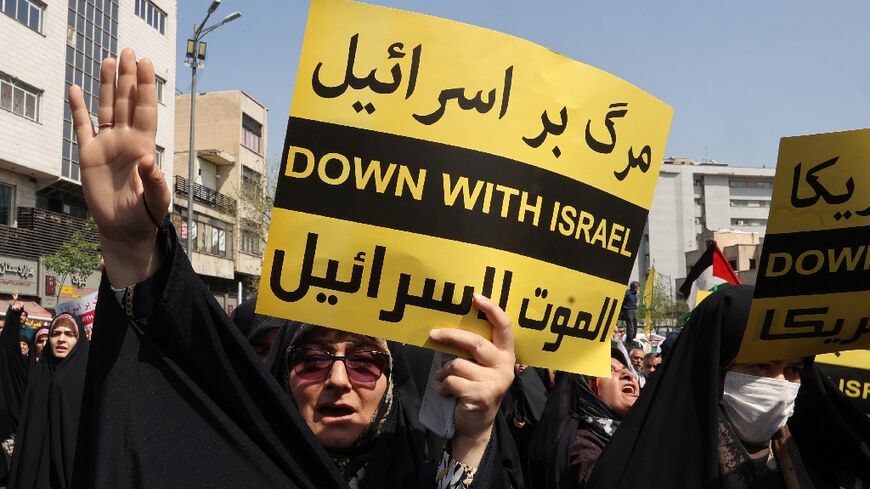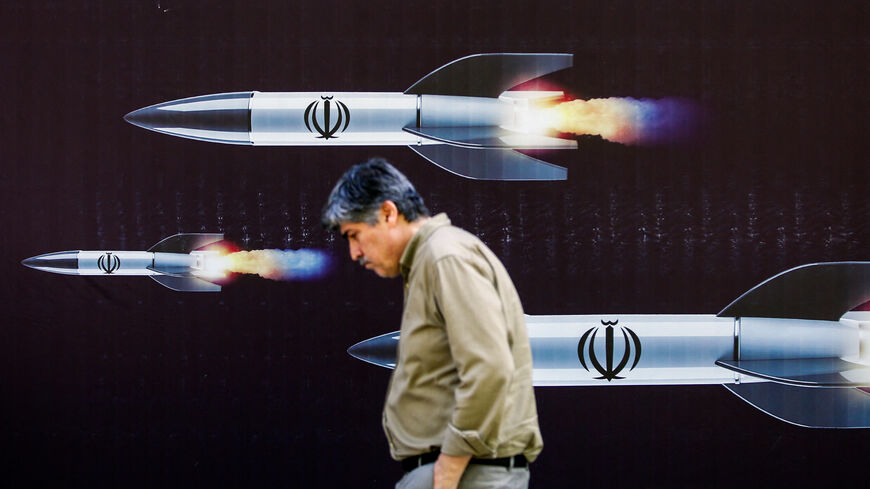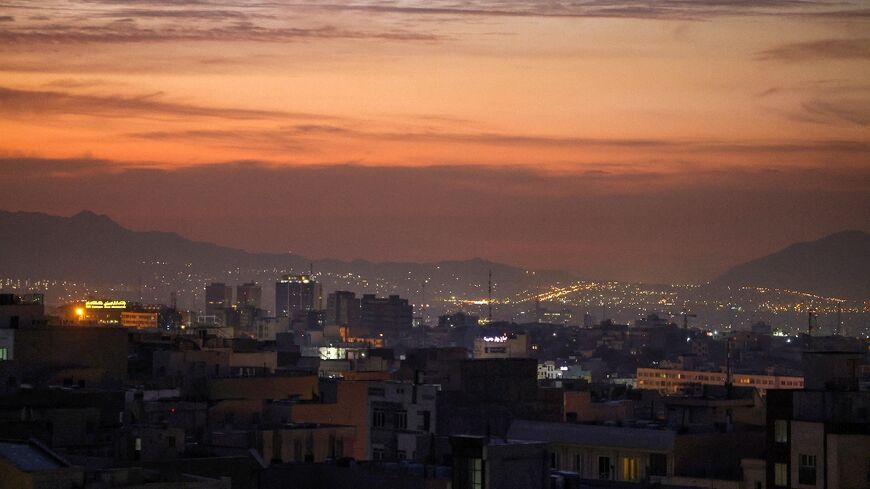What we know about reported strike on Iran

Explosions rocked Iran's central Isfahan province on Friday, according to state media, while US officials told American news outlets that Israel carried out a retaliatory strike on the Islamic republic.
The attack comes less than a week after Tehran launched a barrage of more than 300 drones and missiles in its first-ever direct assault on Israel's soil. That unprecedented onslaught was itself a reprisal for an earlier strike in Syria widely blamed on Israel.
The escalating tit-for-tat between the arch-rivals has prompted global powers to urge caution and appeal on both sides to not allow frictions underlying the war in Gaza to unfurl into a wider conflict across the Middle East.
Here is what we know so far about the reported strike inside Iran:
- What was hit? -
Early Friday, Iran's Fars news agency said "three explosions" were heard near the Shekari army airbase in the northwest of Isfahan province.
Iran's space agency spokesman Hossein Dalirian said several drones had been shot down and there had been "no missile attack for now".
An unnamed US official told CNN the target of the Israeli strike inside Iran was not nuclear.
Iran's Tasnim news agency said the "nuclear facilities in Isfahan province are completely secure".
Citing informed sources, Tasnim also denied Iran had been attacked from abroad.
Blasts were also reported in southern Syria, according to a local activist group.
- How did Iran respond? -
Air defence systems over several Iranian cities were activated, state media reported.
Flights to the cities of Tehran, Isfahan and Shiraz were suspended, as were airports across several parts of the country, according to the Mehr news agency.
Flight-tracking software showed commercial flights avoiding western Iran, including Isfahan, and skirting Tehran to the north and east.
One flydubai plane that had already departed for Tehran had to return to Dubai after the Iranian capital's airport was closed, the Emirati airline said in a statement.
On Friday morning, Iranian television carried a live feed of normal road traffic at a roundabout in Isfahan, while the official IRNA news agency said "no major damage" was reported after the explosions.
- Why now? -
Iran-backed armed groups across the region have carried out attacks on Israel since the war in Gaza broke out in October.
Both Lebanon's Hezbollah and Palestinian militant group Hamas are backed by Iran.
But the recent, and direct Israel-Iran exchanges have ventured into unprecedented territory.
In response to a deadly attack on the Iranian consulate in Damascus on April 1 widely blamed on Israel, Tehran fired hundreds of missiles and drones at its arch-foe.
Israel had vowed to respond to that onslaught launched on Saturday, which was mostly intercepted and caused no deaths.
Just hours before the explosions were heard inside Iran on Friday, the foreign minister warned that Israel would come to "regret" any attack on his country.
Speaking at the UN Security Council during a meeting on the Middle East on Thursday, Iran's Foreign Minister Hossein Amir-Abdollahian called the Islamic republic's weekend barrage a "legitimate defence" and said Israel should "stop any further military adventurism".
- What has been the reaction? -
Israel's military told AFP on Friday that "we don't have a comment at this time" when asked about reports of explosions and strikes in Iran and Syria.
There was no immediate comment from the White House or Pentagon.
Several US media outlets reported that Washington had received advanced notice of Israel's strikes, but had not endorsed the operation or played any part in its execution.
burs-lb/dv






